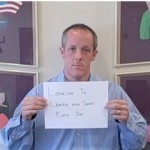Daniel H. Pink's Blog, page 20
November 23, 2010
The 3 rules of mindsets
 Last week at a conference, I had the good fortune of hearing a lecture by Stanford University professor Carol Dweck, whose research on intelligence and mindsets has been revelatory for me in all aspects of my life.
Last week at a conference, I had the good fortune of hearing a lecture by Stanford University professor Carol Dweck, whose research on intelligence and mindsets has been revelatory for me in all aspects of my life.
Dweck's broad argument is that what people believe shapes what they achieve — mostly irrespective of their innate talent. Some people, she says, have a fixed view of intelligence: They believe that intelligence is an entity, that we're each endowed with a particular finite supply. Others have a growth view of intelligence: They believe that intelligence can expand through practice and effort.
Your starting assumption about intelligence — your mindset, as she calls it in a popular book — heavily determines what you're able to accomplish. And people with growth mindsets generally accomplish more and learn more deeply.
In the lecture, Dweck set out three rules that nicely summarize the differences between the two mindsets along with quotations from students that demonstrate the rules.
RULE #1
Fixed mindset: Look clever at all costs. ("The main thing I want when I do my school work is to show how good I am at it.")
Growth mindset: Learn, learn, learn. ("It is much more important for me to learn things in my classes than it is to get the best grades.")
RULE #2
Fixed mindset: It should come naturally. ("To tell you the truth, when I work hard at my school work it makes me fee like I'm not very smart.")
Growth mindset: Work hard, effort is key. ("The harder you work at something, the better you'll be at it.")
RULE #3
Fixed mindset: Hide your mistakes and conceal your deficiencies. (After a disappointing exam score, "I'd spend less time on this subject from now on. I'd try not to take this subject ever again, and I would try to cheat on the next test.")
Growth mindset: Capitalize on your mistakes and confront your deficiencies. (After a disappointing exam score, "I'd work harder in this class and spend more time studying for the tests.")
If you have children, manage others, or are at all interested in improving what you do and how you do it, you need to understand Dweck's research and its implications. For more info, here is the transcript of a speech from last year in which Dweck covered ground somewhat similar to what I heard last week. Stanford Magazine had a good profile of Dweck a few years ago that included an excellent infographic explaining the differences between the two mindsets. And be sure to check out her books — either Mindset or the more academic Self-theories.






November 15, 2010
Three ways to make the workplace richer in feedback
 In this month's Sunday Telegraph column, I strap on my spelunking gear and explore the most feedback-deprived cave in our civilization: The modern workplace. While the rest of our lives are rich in feedback — just look at the Tweet counter for this post or listen for the little sound your phone makes when you send a text — the workplace is barren territory.
In this month's Sunday Telegraph column, I strap on my spelunking gear and explore the most feedback-deprived cave in our civilization: The modern workplace. While the rest of our lives are rich in feedback — just look at the Tweet counter for this post or listen for the little sound your phone makes when you send a text — the workplace is barren territory.
The main mechanism for feedback on the job?
The annual performance review.
This is something that drives Millennials crazy. And their complaints often make their Boomer bosses cringe. But on this at least, Gen Y has a point. And for them, as well as for us oldsters, I look at three ways – DIY performance reviews, peer rewards, and some groovy new software — to pump a little more feedback oxygen into our employment caves.
Previous Sunday Telegraph columns:
October: Is giving away your shoes the right business model for you?
September: What can a high school algebra class teach you about innovation?
August: Is the best vacation policy no policy?
July: Can you speak human at work?
June: Is Bob the Builder the ideal leadership role model?
May: Could ending sales commissions increase sales?






November 3, 2010
Quotes of the day: These may or may not relate to yesterday's election
Maybe I'm having my own extended moment of Zen, but I keep thinking about these two quotations, which I encountered earlier this week.
 "There are years that ask questions and years that answer them."
"There are years that ask questions and years that answer them."
– Zora Neale Hurston (quoted in The Week)
"People can foresee the future only when it coincides with their own
 wishes, and the most grossly obvious facts can be ignored when they are unwelcome."
wishes, and the most grossly obvious facts can be ignored when they are unwelcome."
– George Orwell, "London Letter," Partisan Review, Winter 1945 (Quoted in Arts Journal)






November 1, 2010
Emotionally intelligent Monday
Here's a collection of signage, emotionally intelligent and otherwise, that readers have sent in recently. (Warning: One sign has language that probably isn't safe for work or for kids.)
From Oskar Pearson :
From Rick Carek:
From Adam Clayman :






October 28, 2010
REMINDER: Only 4 days left in our "What's Your Sentence?" Project







 Last week, and in an earlier edition of the Pink newsletter, we issued a challenge: Can you distill your life — what you're about, what you hope to achieve — into a single sentence and record it in a 15-second video?
Last week, and in an earlier edition of the Pink newsletter, we issued a challenge: Can you distill your life — what you're about, what you hope to achieve — into a single sentence and record it in a 15-second video?
The "What's Your Sentence?" exercise, which comes from Drive, has proven so popular over the last several months that we've decided to make a short video compiling the sentences of people all over the world.
So far, we've received hundreds of submissions — some hilarious, some poignant, some that, er, defy a single adjective. (You can see a few screen shots on the right.)
We'd like to get your entry, too.
But here's the thing: You've got to get it to us before midnight on Sunday October 31. That's soon.
To find out more about the project, and the very simple ways you can submit your clip, go to this link or scroll down the page. The video book trailer that describes the What's Your Sentence Exercise is here. The two-minute video explanation of the project itself is here.
So fire up your video — and tell us your sentence.






October 27, 2010
Motivation Twitter-style
 So . . . how's your week going?
So . . . how's your week going?
For me, and perhaps for you, this week is like any other — a tangle of deadlines, meetings, phone calls, email, and dreams deferred.
But in the hallowed halls of Twitter, something else is going on. It's "Hack Week." For seven days, Twitter employees will "all be building things that are separate from our normal work and not part of our day-to-day jobs."
It's another example of the growing trend of companies tapping the power of autonomy to deliver results. And it joins similarly inspired efforts like Atlassian's brilliant FedEx Days — a concept that is spreading like benevolent kudzu at companies and even schools across North America — and the 20 percent time initiatives at Google and elsewhere.
On its Engineering blog, Twitter offers a few more details:
There aren't many rules – basically we'll work in small teams and share our projects with the company at the end of the week. What will happen with each project will be determined once it's complete. Some may ship immediately, others may be added to the roadmap and built out in the future, and the remainder may serve as creative inspiration.
As I've repeated and repeated and repeated (and repeated? – Ed.) over the last several months, "management" does not lead to engagement. It's a technology designed to get compliance. (For a related view, check out Gary Hamel's outstanding book, The Future of Management). The only way people truly engage is through self-direction. Which is why Hack Weeks, 20 percent time, and FedEx Days are so urgent – and why, in many ways, they're the future of business.
More:
TechCrunch has a good story on Hack Week
The creation tale of Twitter itself revolves around autonomy






October 22, 2010
If the shoe fits, give it away: What TOMS can teach your business
 In this month's Sunday Telegraph column, I examine the peculiar business model of the insanely popular American company, TOMS Shoes. Every time TOMS sells a pair of shoes to one of its customers, it gives away a pair to someone in need.
In this month's Sunday Telegraph column, I examine the peculiar business model of the insanely popular American company, TOMS Shoes. Every time TOMS sells a pair of shoes to one of its customers, it gives away a pair to someone in need.
Turns out this the that short interview here.
October 20, 2010
The Four-Word MBA
 Lots of people spend lots of money on business school — and it's often a worthy investment. You can learn new skills, broaden your network, and postpone reality for two years.
Lots of people spend lots of money on business school — and it's often a worthy investment. You can learn new skills, broaden your network, and postpone reality for two years.
But I've always thought about offering a far cheaper business credential — enduring advice for managers of any kind that I call The Four-Word MBA.
Here it is:
Talk less. Listen more.
Give it a try. It'll make you a better leader. And if you forget, take our refresher course.






October 17, 2010
What's your sentence?: The movie
Careful readers of Drive will remember the "What's Your Sentence?" exercise from page 154 of the book. (If you've forgotten, shame on you. But you can watch the 2-minute video below or can click here to get up to speed.)
The exercise asks you to distill your life — what it's about, why you're here — into a single sentence. It's tough, but it's powerful. And in workplaces and schools, in the US and abroad, an astonishing number of people are giving it a try.
To expand the conversation, we've decided to make a short film that assembles the sentences of people around the world.
Wanna play?
All you need to do is video yourself for about 15 seconds. Say your name, where you're from, and your sentence. Don't be meek. Break out the props, play some music, find an amazing setting, whatever you want. Then email the video to me at dhp@danpink.com. (In the alternative, you can upload your video to YouTube and tag it with "mysentence". To make it easy, you can even record your video straight to YouTube with your webcam by clicking here.)
Everyone who sends in a clip will be entered in a random drawing to win a free book as our thank-you gift. I've purchased a few dozen copies of my favorite business books of the last year — from Seth Godin's Linchpin to David Shenk's The Genius in All of Us to Tony Hsieh's Delivering Happiness — that I'm eager to give away. So you'll have a chance not only to make a contribution to the world, but also to win a mind-altering book.
Just watch the video below for the instructions.






What makes an elite?
 Paul Sullivan – author of the terrific book, Clutch – has a fascinating piece in Saturday's New York Times about the growing ranks of social scientists who are studying American elites.
Paul Sullivan – author of the terrific book, Clutch – has a fascinating piece in Saturday's New York Times about the growing ranks of social scientists who are studying American elites.
As wealth in this country concentrates at the top – and, increasingly, at the top of the top – how that happened and who inhabits this upper echelon becomes an important research question.
Sullivan's story offers three especially interesting tidbits:
One scholar he interviews "cited data that the United States how had the lowest level of intergenerational economic mobility in the world, after England." If this is accurate, it's terrifying. And if it persists, it fundamentally changes the very notion of America – both as a nation and an aspiration.
Northwestern professor Jeffrey Winters has identified what he calls the "income defense industry," a loose alliance of "accountants, lawyers and financial advisers employed by the wealthy – and the merely affluent – to manage their financial affairs." Isn't this an argument for tax simplification? Wouldn't the talents of the people in this industry be better deployed on something more productive than gaming the tax code?
In a finding that offers hope for the depressing consequences of that first tidbit, it turns out that a privileged upbringing matters much less than researchers thought, according to Michael Lindsay at Rice University. Instead, it was an early career opportunity that often provided the route to the top. "Being able to look beyond their specialty early – as opposed to being highly specialized early on and then thrust into a leadership role – distinguished great leaders more than any early advantage."
Keep an eye on this research. It's going to reveal a lot about this country and its people.












